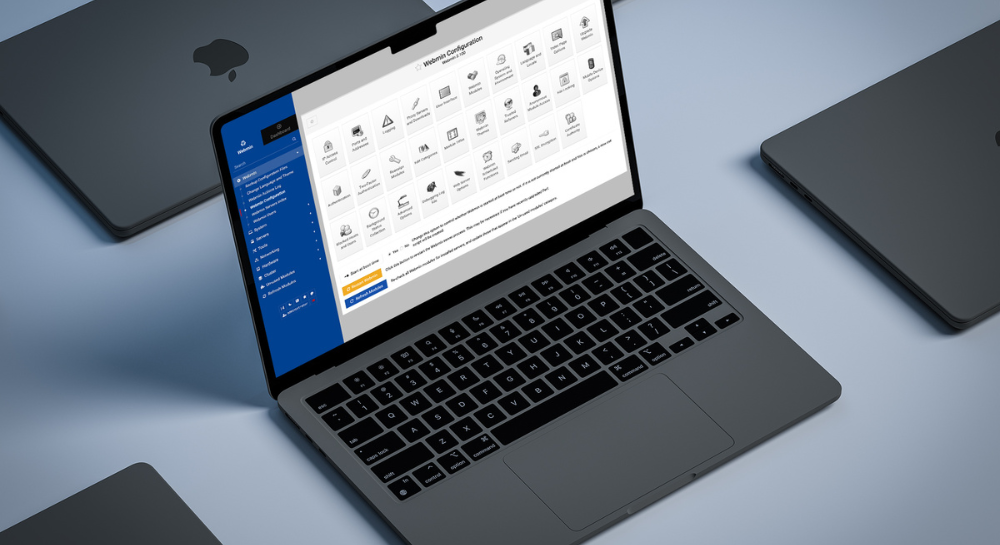In the modern manufacturing landscape, efficiency, precision, and customer satisfaction are key drivers of success. While Enterprise Resource Planning (ERP) systems are designed to manage core business operations like production, inventory, and supply chain management, Customer Relationship Management (CRM) systems focus on managing customer interactions, sales, and aftercare. Traditionally, these systems have operated in silos, but integrating ERP and custom CRM solutions into a unified platform offers a powerful way to streamline operations, enhance customer satisfaction, and optimize resource management.
In this post, we’ll explore the benefits of ERP integration with custom CRM systems to create a unified manufacturing solution that can manage everything from production processes to customer relationships in one seamless platform.
The Importance of ERP and CRM Integration
ERP and CRM systems are critical tools for manufacturers, but when these systems operate separately, it creates inefficiencies, data silos, and communication gaps. Here’s why integration is vital for modern manufacturing:
-
Holistic View of Operations and Customer Relationships: ERP systems handle the internal workings of a manufacturing business, such as production schedules, raw material procurement, and inventory management. On the other hand, CRM systems focus on external interactions like managing sales pipelines, tracking customer feedback, and handling post-sale services. Integrating the two provides a 360-degree view of the entire operation, from production to customer service. This unified approach ensures that all departments are aligned, which leads to more informed decision-making and better operational outcomes.
-
Streamlined Processes: By integrating ERP with CRM, manufacturers can streamline processes across the board. For example, when a sales team logs a new customer order in the CRM, once approved, the ERP system can automatically update inventory levels, adjust production schedules, and ensure that the necessary materials are procured. This eliminates the need for manual data entry and reduces the risk of errors, ultimately improving efficiency.
-
Improved Data Accuracy: In a non-integrated environment, data often needs to be entered into multiple systems, which increases the chances of discrepancies and errors. ERP-CRM integration creates a single source of truth, ensuring that all departments work with accurate, up-to-date information. This leads to improved forecasting, better inventory management, and more effective production planning.
Key Benefits of Integrating ERP with Custom CRM Solutions
A unified manufacturing solution that combines ERP and custom CRM offers several key benefits:
-
Enhanced Customer Experience: When ERP and CRM systems are integrated, customer-facing teams have access to critical information, such as order status, inventory availability, and delivery timelines. This means they can provide customers with accurate, real-time updates, enhancing communication and overall customer satisfaction. Additionally, having insight into production schedules allows sales teams to set realistic expectations and deliver on promises. In worst case situations, customers can receive important and timely notifications if some variance exists.
-
Better Demand Forecasting and Inventory Management: Integration of ERP with custom CRM solutions allows for better demand forecasting. Customer behavior and order history tracked through the CRM can inform production planning in the ERP system, ensuring that manufacturers produce just the right amount of inventory to meet demand without overstocking. Eliminating delays in the system improves supply chain efficiency and reduces waste.
-
Automated Workflows and Reduced Manual Effort: Integrated systems allow manufacturers to automate critical workflows, such as processing customer orders, updating inventory levels, or generating invoices. When a sales order is logged in the CRM, the ERP system can automatically trigger actions like production planning, raw material procurement, and shipping logistics. This ERP integration eliminates the need for manual intervention, reduces the risk of human error, and frees up staff to focus on higher-value tasks.
-
Improved Collaboration Between Departments: ERP-CRM integration creates greater transparency across departments, allowing for seamless collaboration. When sales, production, and customer service teams all have access to the same data, they can work together more effectively. Sales teams can inform production teams about upcoming orders, while customer service teams can provide post-sale support with full visibility into the production and delivery process.
Building a Unified Manufacturing Solution with ERP and Custom CRM
Creating a unified manufacturing solution requires careful planning and customization to ensure that both ERP and CRM systems work together seamlessly. Here’s how custom CRM solutions can enhance ERP integration:
-
Customization for Industry-Specific Needs: Every manufacturing business has unique workflows, processes, and customer management needs. Off-the-shelf ERP and CRM solutions may not provide the flexibility required to handle specific industry challenges. A custom CRM can be designed to integrate fully with an existing ERP system, providing features that are tailored to the manufacturer’s specific operational and customer management requirements.
-
Seamless Integration with Third-Party Tools: Many manufacturers use third-party tools to manage various aspects of their operations, from production floor automation systems to supply chain management software. A custom CRM solution can be designed to integrate seamlessly with these tools, ensuring that all systems work together to provide a unified view of operations. This level of integration enhances both internal efficiency and customer service.
-
Enhanced Reporting and Analytics: A unified ERP-CRM system provides manufacturers with powerful reporting and analytics capabilities. By combining operational data from the ERP with customer data from the CRM, manufacturers can generate comprehensive reports that provide insights into production performance, customer satisfaction, and sales trends. This information is invaluable for strategic decision-making and long-term business planning.
-
Flexibility for Growth and Expansion: As manufacturers grow, their systems must scale with them. A custom CRM solution integrated with ERP offers the flexibility needed to accommodate growth. Whether it’s adding new product lines, expanding into new markets, or scaling up production capacity, a unified system can adapt to the changing needs of the business.
Why Manufacturers Should Invest in ERP-CRM Integration
For manufacturers looking to stay competitive, ERP-CRM integration is no longer optional—it’s a necessity. Here’s why investing in a unified solution is crucial:
-
Increased Efficiency: Integrated systems streamline operations, reduce redundancies, and improve productivity. When ERP and CRM work together, manufacturers can automate repetitive tasks, reduce manual data entry, and ensure that all departments have access to accurate, real-time data.
-
Better Decision-Making: With access to both operational and customer data in one system, manufacturers can make more informed decisions. Whether it’s optimizing production schedules based on customer demand or adjusting inventory levels to meet future orders, integrated systems provide the insights needed for proactive decision-making.
-
Scalability for Future Growth: As the manufacturing landscape evolves, businesses need systems that can adapt to new challenges and opportunities. ERP-CRM integration provides the scalability manufacturers need to grow, innovate, and stay ahead of the competition.
-
Competitive Advantage: In today’s market, customers expect a seamless experience from the initial sales inquiry to product delivery. By integrating ERP with CRM, manufacturers can meet these expectations, providing exceptional service while optimizing internal processes. This not only enhances customer satisfaction but also gives manufacturers a competitive edge.
Integrating ERP systems with custom CRM solutions offers manufacturers a powerful way to unify operations, improve efficiency, and provide better customer service. A unified manufacturing solution enables seamless communication between departments, enhances demand forecasting, and automates workflows—resulting in greater operational efficiency and customer satisfaction.
At Kyo Logic, we specialize in providing tailored ERP-CRM integrations that meet the specific needs of manufacturers. Contact us today to learn how we can help your business achieve a unified, efficient, and scalable solution.
If you want to learn more, you can reach out to us here.



